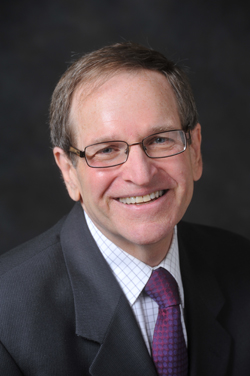Join a community of readers who are committed to Jewish stories
Sign up for JBC’s Nu Reads, a curated selection of Jewish books delivered straight to your door!
 In Relational Judaism, I report six case studies of organizations and individuals doing cutting-edge work in creating relational communities. Chabad is numero uno. Their first – and most important – “secret” of success: a warm welcome to everyone they meet and an invitation to share a meal, usually in the rabbi’s home and usually within five minutes of the first personal encounter. They practice what I have called “radical hospitality,” a passionate commitment to learning about each and every person they meet. Google “Chabad” and inevitably you will see results that include “no membership fees” and “free Hebrew school.” The truth is that Chabad is not “free.” What they have done is to turn the membership model upside down: instead of asking for dues upfront and then serving the members, Chabad offers hospitality and programming first and then aggressively asks for money. The vast majority of their funding comes from those grateful for their relationship with the Chabad rabbi and his family, almost always non-Orthodox Jews. Does it work? Estimates suggest Chabad raises well north of $1 billion annually.
In Relational Judaism, I report six case studies of organizations and individuals doing cutting-edge work in creating relational communities. Chabad is numero uno. Their first – and most important – “secret” of success: a warm welcome to everyone they meet and an invitation to share a meal, usually in the rabbi’s home and usually within five minutes of the first personal encounter. They practice what I have called “radical hospitality,” a passionate commitment to learning about each and every person they meet. Google “Chabad” and inevitably you will see results that include “no membership fees” and “free Hebrew school.” The truth is that Chabad is not “free.” What they have done is to turn the membership model upside down: instead of asking for dues upfront and then serving the members, Chabad offers hospitality and programming first and then aggressively asks for money. The vast majority of their funding comes from those grateful for their relationship with the Chabad rabbi and his family, almost always non-Orthodox Jews. Does it work? Estimates suggest Chabad raises well north of $1 billion annually.
Hillel is pioneering a relationship-based outreach effort called “Senior Jewish Educator/Campus Entrepreneur Initiative.” College sophomores and juniors are offered stipends and training to reach out to their circles of friends on campus who would rarely be caught inside a Hillel House. They are coached and taught by a full-time senior Jewish educator who also commits the time to reach 160 disengaged Jewish students annually.
Congregation-based community organizing is a strategy to surface concerns among congregants by conducting one-on-one conversations around questions such as “What keeps you up at night?” The conversation itself is a relational engagement experience that some synagogues use to mobilize social justice actions, but just as importantly leads to better connectedness among the membership.
There are several well-known efforts to engage the next generation of young Jewish professionals, among them Moishe House, NEXT (follow up with Birthright alumni), Jconnect in Seattle, and Next Dor – an initiative of Synagogue 3000 to place “engagement rabbis” and community organizers working from but outside mainstream synagogues to connect with young Jews ages 21 – 40.
No doubt that the social media platforms such as Facebook, Twitter, Instagram and Pinterest have enabled many to create and support relationships among friends and family. Jewish organizations are just beginning to marshal the power of these platforms for building online communities and for encouraging face-to-face communities.
Finally, it turns out the best fundraisers in the Jewish community all agree that relationships are at the heart of securing funding. For Relational Judaism, I interviewed the best of the best, among them Abraham Foxman, John Ruskay, David Ellenson, Arnold Eisen, Jerry Silverman and Esther Netter.
I believe the time has come for us to shift the paradigm of engagement from programmatic to relational. The goal is to build relationships with what I identify as “Nine Levels of Relationship” with the Jewish experience. The strategies are outlined in “Twelve Principles of Relational Engagement.” The six case studies prove that it is possible, that we can revive and strengthen our communal organizations if we put people first and then program for them. It is time for a Relational Judaism.
Check in with Ron at www.facebook.com/relationaljudaism and find additional JBC-reviewed titles by him here.